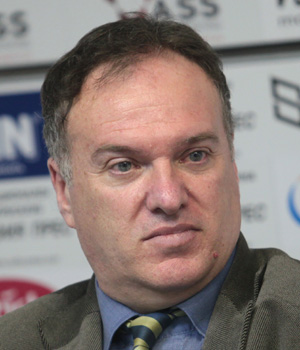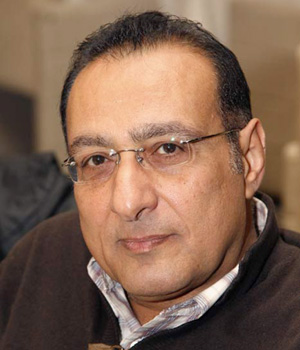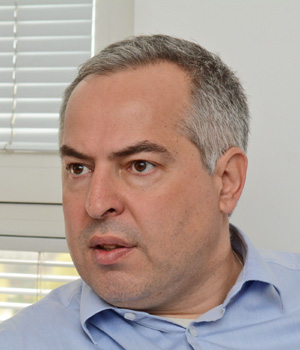The refugee wave and terrorist threat are wounds that would not heal soon. But superficial media reports without analyses, asking questions and seeking answers is not a constructive approach. Ignorance gives rise to fear, mistrust and denial.
The Friedrich Ebert Foundation associated with the Social Democratic Party of Germany and the Bulgarian University of National and World Economy made an attempt to find an explanation of the refugee crisis in Europe and the way media report on it through a discussion featuring Arabic expert prof. Vladimir Chukov and journalists Mohammed Khalaf and Boyko Vassilev. The Conference took place against the backdrop of ongoing negotiations in Geneva, where representatives of over 90 countries and non-governmental organizations have not yet reached agreement on the distribution of more than 480,000 Syrians. This is just 10% of Syrian refugees seeking asylum. "Europeans remain divided and an agreement is not expected to be reached soon,” Vladimir Chukov says.
 "I believe that the refugee crisis has become the major topic of discussion in the past 7-8 months. The second very important topic that shapes the agenda of both Europe and Bulgaria is terrorism. Unfortunately, both topics now go hand in hand and this is a great challenge for us because we should have careful approach towards the refugee wave. It is unwanted and therefore it gets such a large media coverage."
"I believe that the refugee crisis has become the major topic of discussion in the past 7-8 months. The second very important topic that shapes the agenda of both Europe and Bulgaria is terrorism. Unfortunately, both topics now go hand in hand and this is a great challenge for us because we should have careful approach towards the refugee wave. It is unwanted and therefore it gets such a large media coverage."
According to Eurostat, some 1,250,000 people have filed applications for refugee status in Europe. This is a record in the history of this continent. At the same time Bulgarian authorities, as well as those in Western Europe see a change in the profile of refugees. According to the State Agency for Refugees, at the end of 2013 mostly families with children from Syria used to arrive in Bulgaria. Just two years later, the vast majority, over 70 percent of migrants, are men aged between 18 and 36. Fears exist that terrorists have also joined the huge inflow of refugees, especially after it became known that some 25,000 Syrian passports had been stolen, professor Chukov says and adds:
"The refugee issue is very closely linked to terrorism. But again I want to say that we should not give up on being humane. Those people who truly need protection should receive it. Meanwhile, all who have participated in war crimes must be brought to justice. After the terrorist attacks in Paris and Brussels, the situation has changed."
"Even the majority of Arabs who received citizenship in Western Europe long time ago identify themselves through religious affiliation," says Mohammed Khalaf, a Bulgarian journalist who was born in Iraq and is professor at the St. Kliment Ohridski University in Sofia.
 "Since the day of our birth we have been taught to hate Jews and Christians and not to accept the culture of these communities. If left unreformed, this religion would create problems for itself and the world. Reformation is necessary. There should be laws protecting the values of democracy and those laws should be applied. There are such laws in Europe but they are not applied well. But on the other hand we should not isolate religious minorities and make them go to the ghettos, where they do not feel being part of society."
"Since the day of our birth we have been taught to hate Jews and Christians and not to accept the culture of these communities. If left unreformed, this religion would create problems for itself and the world. Reformation is necessary. There should be laws protecting the values of democracy and those laws should be applied. There are such laws in Europe but they are not applied well. But on the other hand we should not isolate religious minorities and make them go to the ghettos, where they do not feel being part of society."
Marginalization of minorities and the formation of ghettos in the heart of Europe is a topic that seemingly does not concern Bulgaria. Professor Mohammed Khalaf, however, sees a particular threat, especially after it became known that a new Muslim house of prayer in the Lyulin District in Sofia preach the ideas of Islamic fundamentalism. Journalist from BNT Boyko Vassilev pointed out another serious problem in this country.
 "We can speak of a true absolute failure of Roma inclusion in society. But this failure is not only Bulgarian, because the same pattern could be found throughout Europe, and this paradoxically exacerbates the negative attitude towards refugees. People say that we cannot manage at home, so how could we deal with an external problem?”
"We can speak of a true absolute failure of Roma inclusion in society. But this failure is not only Bulgarian, because the same pattern could be found throughout Europe, and this paradoxically exacerbates the negative attitude towards refugees. People say that we cannot manage at home, so how could we deal with an external problem?”
Boyko Vassilev also believes that Bulgarian media somehow quickly mixed the problems of refugees and terror. According to the journalist, a common mistake of Bulgarian and Western media is reliance on social networks:
"Social media have made us all enraged. We comment a lot but give very little facts. We pump in too many emotions at the expense of reason. I do not mind – it is freedom of speech, but where are the reports, the investigative materials and the facts? We seek big ratings but this is not what journalism is all about. Journalism means challenging the stereotypes and seeking the facts in order to try to prove your theory.”
English: Alexander Markov
On the eve of the New Year, the most beautiful "gelina" bride of the last 4 years is chosen in the Bulgarian-Mohammedan village of Ribnovo, in south-west Bulgaria. "Gelina" is the name given to brides in the region. It is a unique tradition, where..
A good year for the Executive Agency for Bulgarians Abroad, in which everything was happening as it should. This is how the agency’s head, Rayna Mandzhukova, summed up 2024. In an interview with Radio Bulgaria, she expressed..
The fountain in the center of Bukata Garden, located near Madara Bath in Sofia, has been restored to its original form with the help of the Sofia Municipality. All the elements of the figure have been made from brass in their original form. The..
"Every day, we should think about peace and the messages that politicians send,” journalist Tsvetana Paskaleva, who has been living in..

+359 2 9336 661
